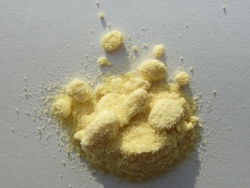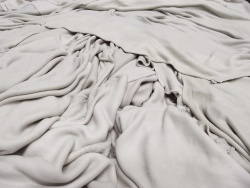Difference between revisions of "Synthetic tanned"
| Line 47: | Line 47: | ||
<center> | <center> | ||
{| {{Prettytable}} | {| {{Prettytable}} | ||
| − | ! bgcolor=#eeeeee | [[Tanning leather | + | ! bgcolor=#eeeeee | [[Tanning leather|Tanning]] methods |
|- | |- | ||
| bgcolor=#ffffff align=center | [[Chrome tanned|Chrome tanning]] - [[Vegetable-tanned leather]] - [[Chamois leather|Tawing with alum]] - [[Buckskin]] - Synthetic tanning | | bgcolor=#ffffff align=center | [[Chrome tanned|Chrome tanning]] - [[Vegetable-tanned leather]] - [[Chamois leather|Tawing with alum]] - [[Buckskin]] - Synthetic tanning | ||
Revision as of 14:37, 17 September 2016
Synthetic tanning is frequently used as an alternative to chrome tanning.
Synthetic tanning agents (aromatic syntans) are produced artificially by man, so have no counterpart in nature. Examples of these include formaldehyde, glutaraldehyde (also known as glutaraldehyde), phenols and acrylates. Synthetic tanning method is not employed as an isolated tanning process, but mostly in a combination tanning process with either chrome tanning or vegetable tanning processes. Chrome leather production ensures retanning with synthetic tanning agents as they provide the necessary “fullness" to the leather. It is estimated that annual production of synthetic tanning agents amount to 200,000 tonnes (2008).
After tanning, when the leather is still wet and not dyed, it gets a bright colour and hence is also referred to as wet white.
Synthetic tanning agents - Wet white
Additional information
- Tanning leather
- Tannins
- Chrome tanning
- Vegetable tanning
- Chamois leather
- Tawing with alum
- Brain tanning
Video about the leather production in the tannery
The leather production in the tannery.
| Tanning methods |
|---|
| Chrome tanning - Vegetable-tanned leather - Tawing with alum - Buckskin - Synthetic tanning |










 a kotori web solution
a kotori web solution